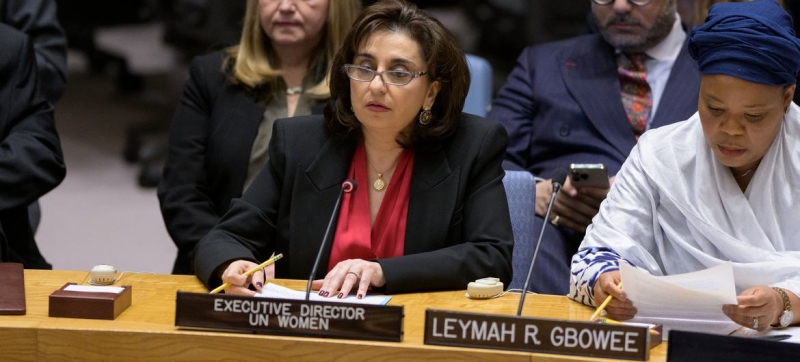
Sima Bacchus at the UN Security Council. The UN calls for the protection of women’s rights around the world Women
Violence against women in its most brutal forms is a characteristic feature of almost all wars and conflicts. Women around the world also face violations of their basic rights. This was stated at a UN Security Council meeting on the role of women and youth in maintaining peace and security, said UN Deputy Chief of Political Affairs Rosemary DiCarlo.
She spoke about her recent trip to Afghanistan, which today is a blatant example of violations of the rights of women and girls.
“Afghan women and girls are systematically denied their rights and dignity in many areas of life, including education. The women I met in Kabul told me about their aspirations and dreams: the same right to education as men, equal employment opportunities and the freedom to choose their future,” DiCarlo said.
“They hope that the world community will support them in realizing their rights so that they can contribute to the future of the country,” she added.
DiCarlo emphasized that Afghanistan is certainly not the only place where women face barriers to equal participation in politics, peacekeeping, public life and employment. This is an almost universal phenomenon.
Women in politics and peace processes
Less than one percent of the world’s parliamentarians are young women. They must play a much more active role not only in legislatures, but also in peace processes around the world. The head of UN Women, Sima Bacchus, stated this at a meeting of the Security Council.
She recalled: when young women are included in the process of socio-economic development, when they are given equal opportunities , including in the labor market, this contributes to economic growth.
“What we have to do is dismantle the existing power structures and norms that prevent young women and girls from full and meaningful participation [in society],” Bacchus said.
Women in Conflict
On November 1st last year, UN Women published a story about 34- year-old Amani, a psychotherapist from Rafah. She helped patients cope with the emotional trauma suffered during the conflict. On May 7, Amani was killed along with her four children.
“Amani is one of more than 10,000 women killed in the past seven months. Just yesterday, dozens of women and children were horribly murdered in Rafah, in the safe zone, while sleeping in tents at a displaced persons camp,” Bacchus said.
“It is for her and for them that we demand a permanent ceasefire, the release of all hostages, a determined effort to achieve peace and a two-state solution. This war must end,” she added.
Bacchus also told the stories of women journalists and human rights activists killed during the conflict in Sudan, in Afghanistan after the seizure of power the Taliban, Haiti, Myanmar, Yemen and the Democratic Republic of the Congo.
“Their deaths are yet another painful reminder of the realities of war for women and girls,” Bacchus said.
Education under attack
In Afghanistan, an education ban prevented 1.1 million Afghan girls from attending school three years ago. In West and Central Africa, more than 13,000 schools have closed in recent years due to conflict and insecurity. In Gaza, girls and boys have been out of school since October 7, 2023. Hundreds of schools are closed in Haiti. In Sudan, 19 million children are out of class. In Ukraine, about 40 percent of children cannot access lifelong education due to lack of conditions.
“There is no second chance at childhood. How can our ambitions to fulfill our responsibilities and give young women and girls the best we have to offer be realized if they are denied the most basic rights?,” said Bacchus.
Countries must do more to support women
DiCarlo and Bacchus said that the UN carries out a number of initiatives to strengthen the role and potential of women – in Lebanon, Yemen, Afghanistan and other countries. At the same time, DiCarlo emphasized that states must make more efforts in this area.
“More than a hundred countries from all regions have developed national plans to implement Security Council Resolution 1325. It is commendable. But more countries must join this call,” she said.
“UN Member States can make a difference by committing to concrete and targeted measures to advance women leadership,” added the Deputy Secretary General. 62~
